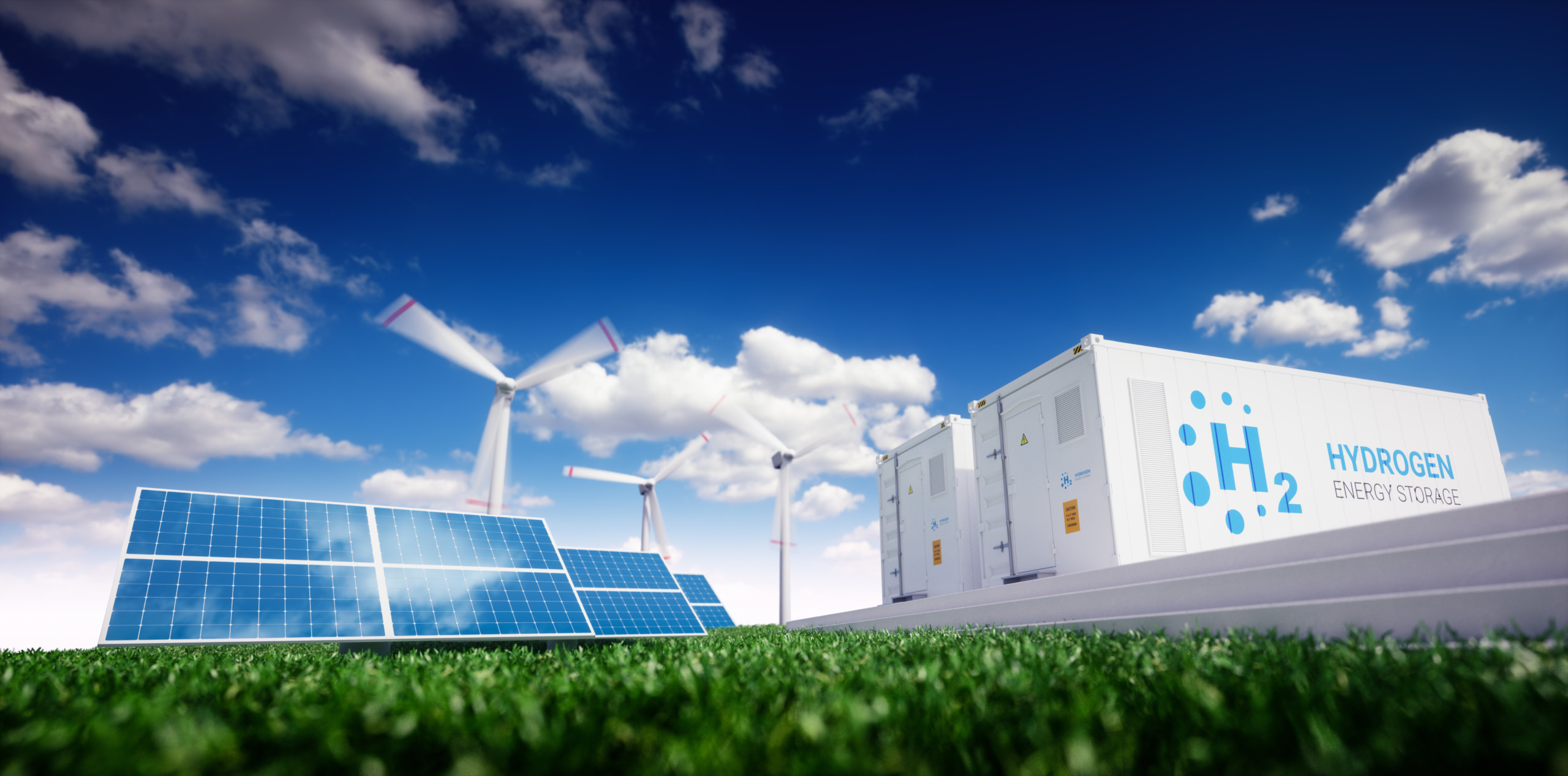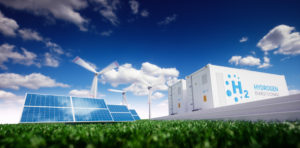Hydrogen – the missing link in the energy transition
There is widespread agreement among policymakers and energy experts that hydrogen will play an important role in the decarbonised energy system of the future.
The International Renewable Energy Agency (IRENA), an intergovernmental organisation with 160 member countries supporting the transition to a sustainable energy future, has called hydrogen “the missing link in the transformation of the global energy system”.
Why hydrogen?
The world is moving towards a zero-emission energy system. The EU aims at a “climate-neutral” economy in 2050. This will require a massive growth of renewable energies, such as solar and wind power. It will at the same time lead to increasing “electrification” of the energy system.
Enter hydrogen. Hydrogen can be used to store and transport (renewable) energy efficiently. And it can provide high-grade heat, helping to meet a range of energy needs that would be difficult to address through direct electrification.
- Green Hydrogen can be made from (renewable) electricity through electrolysis. For example, offshore wind farms or solar parks can be used in combination with electrolysers to produce renewable hydrogen. This process is also called power-to-gas.
- Blue Hydrogen can be made from natural gas through steam methane reforming and other processes. This hydrogen can be made carbon-free if the CO2 that is emitted from the natural gas is captured and stored underground (CCS) or used in other industrial processes.
Promoting Hydrogen
There are several high-level international initiatives promoting hydrogen.
- The Hydrogen Council is a global initiative of leading energy, transport and industry companies with a long-term ambition for hydrogen to foster the energy transition. Launched at the World Economic Forum 2017, in Davos, it includes companies such as Daimler, BMW, EDF, Equinor, GM, Honda, Hyundai, Mitsubishi, Shell, Sinopec, ThyssenKrup, Total, Toyota, Airbus, Air Liquide, Alstom and Bosch.
- Hydrogen Europe, the European Hydrogen and Fuel Cell Association, represents more than 100 industry companies, more than 68 research organizations as well as 13 national associations. The association partners with the European Commission in the innovation programme Fuel Cells and Hydrogen Joint Undertaking (FCH JU).
- The Hydrogen Initiative was signed in Austria on 17 September 2018 by 25 EU countries “to maximise the great potentials of sustainable hydrogen technology for the decarbonisation of multiple sectors, the energy system and for the long-term energy security of the EU.”
There are also many other national hydrogen initiatives, such as the Waterstof Coalitie in the Netherlands, which includes not only industrial and energy companies, but also researchers and NGOs such as Greenpeace.
More than 200 hydrogen projects receive financing under the EU’s Fuel Cell and Hydrogen Joint Undertaking (FCH-JU) programme. Two EU flagship projects are HyCARE, started in 2019 in Italy, which investigates the storage possibilities of hydrogen, and H2FUTURE, a project for the generation of green hydrogen in Germany.
Most of these projects are all still at an early stage. Given all the support for hydrogen, it is not unlikely that a global “hydrogen economy” will eventually emerge. But it will take many decades. That is why hydrogen is sometimes called the fuel of the future.



